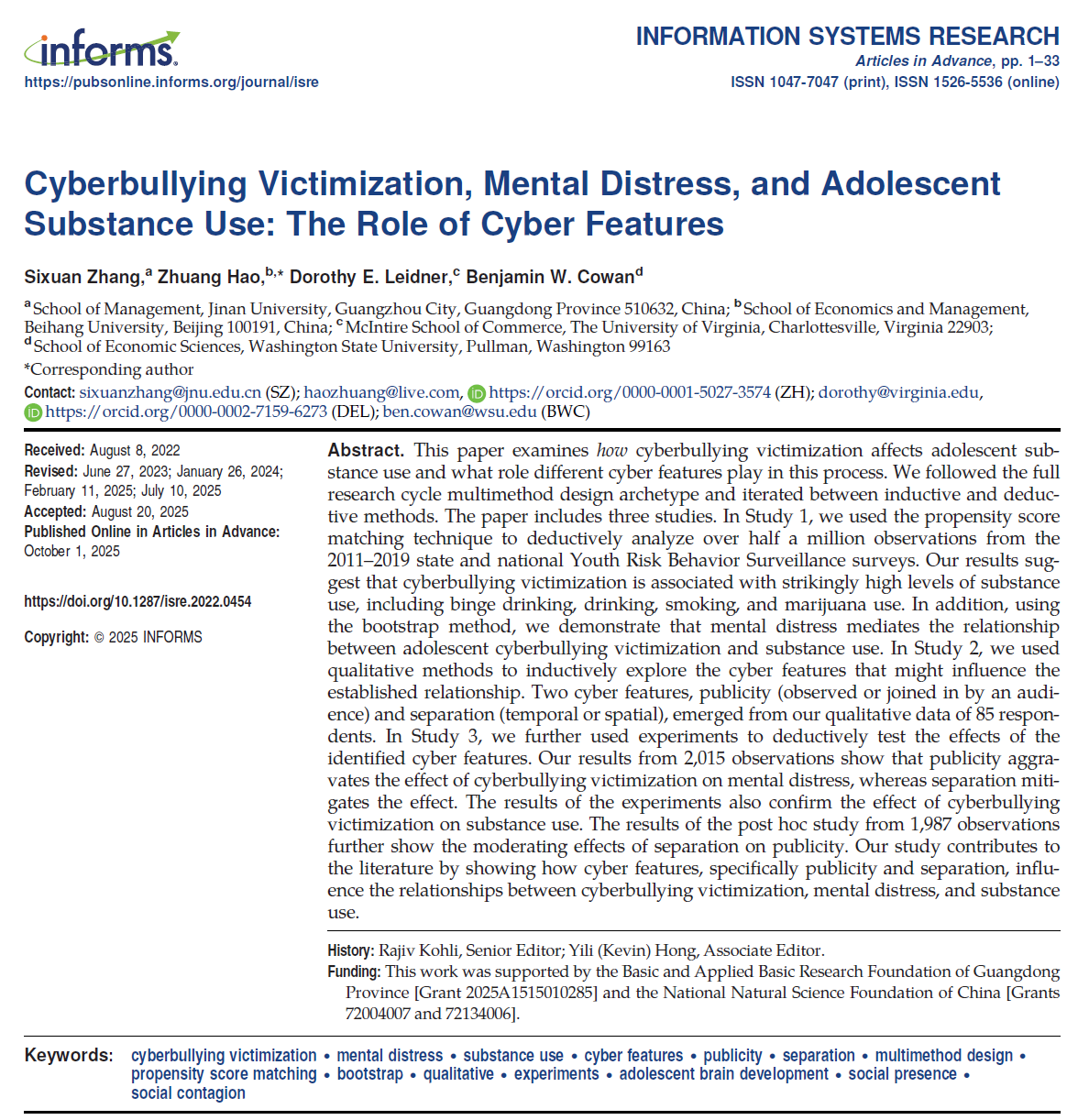A research paper co-authored by Associate Professor Zhuang Hao (Corresponding Author), in collaboration with Zhang Sixuan (First Author) from Jinan University, Dorothy E. Leidner from the University of Virginia, and Benjamin W. Cowan from Washington State University, has been published in Information Systems Research—a leading international journal listed among the UTD24 top-tier publications. The paper is titled “Cyberbullying Victimization, Mental Distress, and Adolescent Substance Use: The Role of Cyber Features.”

This study adopts a mixed-methods approach, combining quantitative, qualitative, and experimental research to systematically examine how cyberbullying victimization contributes to adolescent engagement in risky substance use behaviors, including binge drinking, smoking, and marijuana use. The research consists of three sub-studies:
Sub-study 1 analyzed data from over 500,000 participants in the U.S. Youth Risk Behavior Surveillance System (YRBS) from 2011–2019. Using Propensity Score Matching (PSM) and bootstrap methods, the results revealed a strong positive correlation between cyberbullying victimization and substance use, with mental distress serving as a significant mediator.
Sub-study 2 conducted in-depth interviews with 85 adolescents and identified two key cyber features that influence psychological distress: publicity (whether the bullying is witnessed or joined by others) and separation (the spatial or temporal distance between the victim and the bully).
Sub-study 3 employed a scenario-based experiment (n=2,015) to validate these features. It demonstrated that publicity exacerbates the psychological distress caused by cyberbullying, whereas separation helps alleviate it. A follow-up study (n=1,987) further revealed that separation moderates the effect of publicity.
This research offers important theoretical contributions by uncovering the distinct mechanisms through which cyberbullying—as opposed to traditional bullying—affects adolescent mental health and behavior. It also provides practical implications for schools, parents, social platform operators, and policymakers. The findings suggest that a multi-faceted approach—incorporating technology-based solutions (e.g., AI-assisted content monitoring and privacy protection) and psychological support (e.g., building healthy coping mechanisms)—can help mitigate the harmful effects of cyberbullying on youths.
The study was supported by the National Natural Science Foundation of China (Grants 72004007, 72134006) and the Guangdong Basic and Applied Basic Research Foundation (Grant 2025A1515010285).
Link to the publication: https://doi.org/10.1287/isre.2022.0454